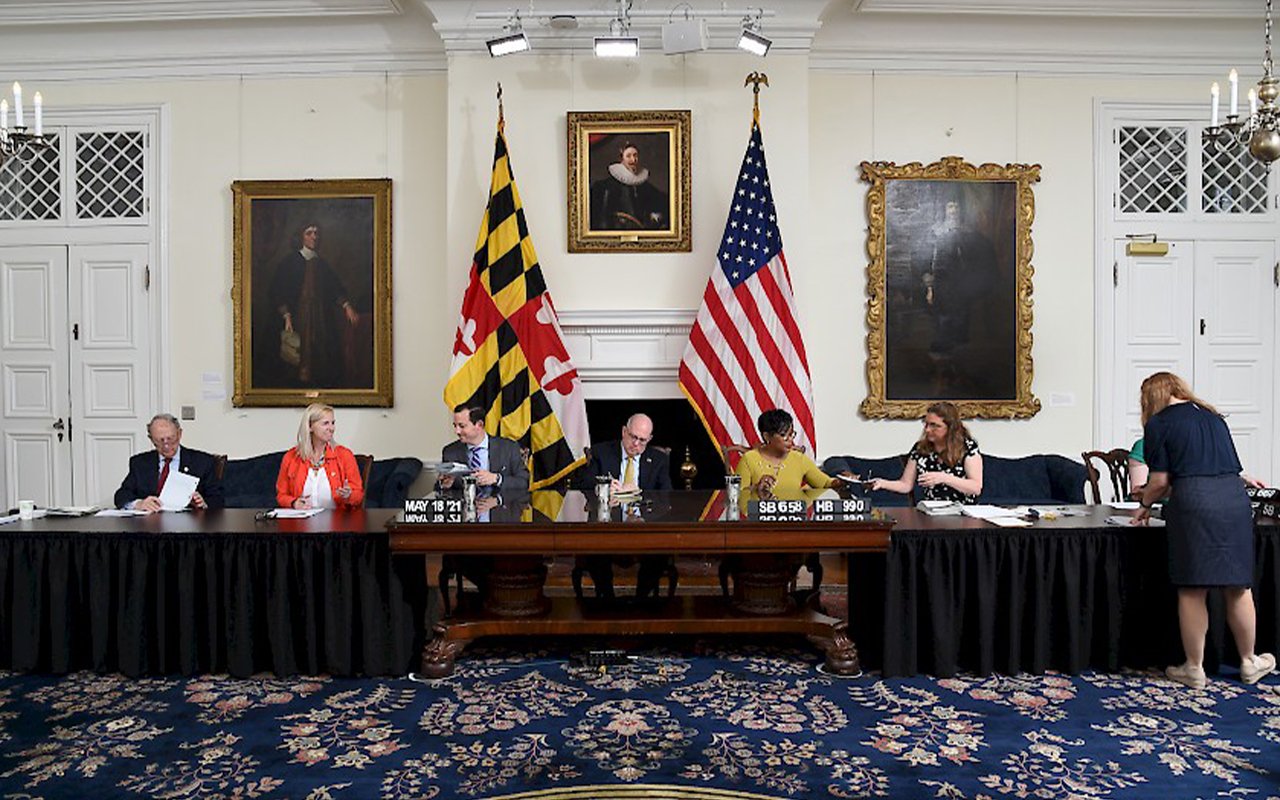The proliferation of climate change, political strife, and general societal divisiveness is changing the nature of the work of emergency managers. The (ongoing) COVID-19 global pandemic, devastating hurricane and wildfire seasons, tenuous political situations, and broad unrest impact local communities in significant ways. Emergency managers are those who officials trust to lead response and recovery to this growing list of emergencies and disasters. They facilitate multi-agency responses to complex incidents, often serving in silence while providing critical backbone services.
Until recently, many elected officials, public administrators, and even citizens were unfamiliar with the services that emergency managers provide. This changed drastically when faced with COVID-19, where emergency management agencies across the nation coordinated the core community response activities. From building hospital surge capacity, developing testing sites, completing bulk purchases of personal protective equipment (PPE), then eventually rolling out the largest domestic vaccination effort in modern history, emergency managers executed in ways not possible in single-discipline agencies. Their unwavering commitment to mission in 2020 and 2021 was the ability to couple the COVID response with a relentless onslaught of natural disasters, civil unrest, and an attack on democracy.
Until this past year, emergency managers have sometimes been referred to as the hurricane people who were thankfully there when something bad happened. Although this is a past perception, the reality is that modern emergency management agencies are highly sophisticated organizations that combine the collective talents of multidisciplinary staff to solve complex problems. They also are forward thinking, trying to create ways to augment government missions rather than taxing them, because taxing them would be an additional stressor for social and economic resilience.
The Uniqueness of Emergency Management Agencies
The reality is that modern emergency management organizations operate differently than typical public agencies. They rely on mission-oriented teams that sacrifice holidays, nights, and weekends to serve the community. Although they exist within traditional public organizational structures, many find ways to be nimble enough to meet the demands of a disaster where other rigid organizations may fail. Disasters require swift, decisive action, flexible organizational approaches to problem solving, innovation, and focus on customer-driven outcomes.
Across the nation, there is a changing perception about what emergency managers do and what their capabilities are. Despite the field’s roots in civil defense and the tendency to view emergency management jobs as a job that one takes after a first retirement from the emergency services, the reality is the new generation of emergency managers are coming from diverse backgrounds, educational programs, and from paths that depart from the status-quo mono-demographic that has plagued this field for years.
This has enhanced the services that emergency managers provide and adjusted their approaches to problem solving. No longer are emergency managers making decisions based primarily on gut feelings, rather they are leveraging young talent from diverse academic and professional backgrounds. These individuals bring new and innovative perspectives to the multitude of threats that are a consequence of the progress and innovation of modern society. This changing environment is significant and is leading to significant reforms and recognition from elected officials about the capabilities of these often-forgotten agencies.
New Complex Problems
Society’s modern problems are complex, multidisciplined, and multijurisdictional. COVID certainly exposed many societal problems and illustrated the fact that communities do not start from the same baseline before a disaster. For example, food scarcity, which is already an issue, emerged as a major problem during COVID. In Montgomery County, Maryland, officials leaned on emergency managers to solve complex supply chain and distribution problems. After the pandemic subsided, the Maryland General Assembly called on emergency managers to lead a workgroup to establish long-term fixes to this issue.
Elected officials had previously called upon emergency managers to solve complex problems such as the opioid crisis and homelessness, as well as to address the challenges of civil unrest and geopolitical strife. In these cases, officials recognized the unique skills and capabilities of emergency managers. Many also call for emergency managers to lead in other areas such as preparing for the impacts of cyberattacks.
Compounding the situation are surging disasters resulting from climate change, which bring rising costs and increased complexity. The news gets worse, as proceedings from COP26 suggest that changes are accelerating and countries are falling short on policies aimed at reducing impacts. When there is a climate-fueled disaster, emergency managers will take the lead on community coordination for response and recovery, despite expanded responsibility in other areas.
From Marginalized to Mainstream
During the COVID response, many emergency management agencies emerged as trusted leaders in their communities. Not only are emergency management agencies being entrusted with typical duties, but they often are leading nontraditional projects that require complex multiorganizational coordination efforts. From risk reduction to food resilience, or even leading efforts to address other complex societal challenges, stakeholders recognize the potential of tapping emergency managers to solve problems. This demonstration of trust also is leading emergency management agencies to emerge as stand-alone departments, with elevated status within organizational charts, and reporting to the chief elected official in a community.
In 2021, Maryland joined a handful of other states by elevating its state emergency management agency to a cabinet-level department, reporting directly to the governor. Previously an agency within the Maryland Military Department, the move established the Maryland Department of Emergency Management and moved statewide 911 responsibility under the new department. This move has benefits not only during disasters, but also established the department on equal footing with other stakeholders, which improves preparedness and disaster risk-reduction activities. On the other side of the country, the Oregon Legislature took similar action, establishing the Oregon Department of Emergency Management, an independent department in state government. The elevation of emergency management to principal or stand-alone departments is not just happening at the state-level.
In December 2021, county officials elevated the San Mateo Office of Emergency Management to a standalone department with an expanded role and more responsibilities. On the east coast, in 2019, the City of Annapolis established an independent Office of Emergency Management, which was once a component of the Annapolis Fire Department. Like many other elevated offices, this move coincided with an expanded scope and focus on other activities such as hazard mitigation and resilience.
The fate of federal emergency management and the Federal Emergency Management Agency (FEMA) remains unclear. A long and spirited debate continues about whether FEMA should return to its pre-911 independent status, or if it should stay in a subservient role to the Department of Homeland Security. What is also unclear is if independent status would have improved the initial months of the federal COVID response, when FEMA was unclear on its role and statutory authority for response to a pandemic. There are many vocal proponents of independence, such as Dr. Samantha Montano who points to past failed independence efforts and more broadly the need for comprehensive emergency management reform in the United States. Only time will tell if the Biden Administration takes this issue on as they place greater emphasis on FEMA risk-reduction efforts as part of broader efforts to improve the nation’s infrastructure.
Conclusion
Emergency managers are mission-driven public servants who deserve to stand on equal footing with their colleagues in other cabinet-level departments. The last few decades of increasingly complex disasters have illustrated how emergency managers accomplish tasks when others cannot. The trend is clear, more agencies are being anointed as stand-alone departments, reporting directly to the chief elected official. This is not happening by chance, rather, it is based on past performance, increasingly complex disasters, and a recognition that very few problems are constrained to one discipline. To solve a complex problem, the preferred agencies are those that are experts at stakeholder engagement, multidiscipline problem solving, and critical thinking. This is clear to those who work in this field and increasingly has become apparent to elected officials.

Kyle R. Overly
Kyle R. Overly is an accomplished emergency management practitioner and educator. He has held many roles throughout his career, including serving as the Director of Disaster Risk Reduction with the Maryland Department of Emergency Management. He has traveled internationally, providing emergency management services and speaking. With over 10 years of experience, he has responded to major disasters, including Hurricane Irene, Hurricane Sandy, the Baltimore City civil unrest, Ellicott City flash flooding (2016 and 2018), and the COVID-19 global pandemic. He is also an educator, with over 10 years of teaching experience, at the University of Maryland Global Campus. He holds a Doctor of Public Administration from West Chester University and a Master of Science in Fire and Emergency Management Administration from Oklahoma State University. In addition, he is a graduate of the National Emergency Management Executive Academy and the Executive Leaders Program at the Center for Homeland Defense & Security – Naval Postgraduate School.
- Kyle R. Overlyhttps://www.domesticpreparedness.com/author/kyle-r-overly
- Kyle R. Overlyhttps://www.domesticpreparedness.com/author/kyle-r-overly
- Kyle R. Overlyhttps://www.domesticpreparedness.com/author/kyle-r-overly






